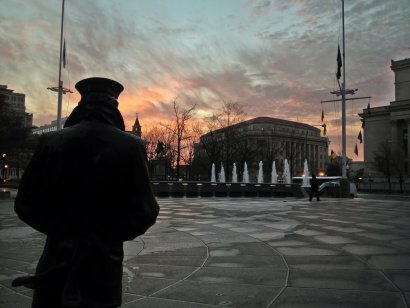Importance of the Lima Group for the Crisis in Venezuela
Miscellanea / / August 08, 2023
 It is a block made up of 14 of the most important countries in America (Argentina, Brazil, Colombia, Chile, Peru, Guyana, Paraguay, Saint Lucia, Honduras, Costa Rica, Canada, Guatemala, Mexico and Panama), born in August 2017, with the aim of continuing and reaching a peaceful solution to the crisis that Venezuela has been going through since 2013 and which has worsened progressively.
It is a block made up of 14 of the most important countries in America (Argentina, Brazil, Colombia, Chile, Peru, Guyana, Paraguay, Saint Lucia, Honduras, Costa Rica, Canada, Guatemala, Mexico and Panama), born in August 2017, with the aim of continuing and reaching a peaceful solution to the crisis that Venezuela has been going through since 2013 and which has worsened progressively.
America and Europe united against Venezuelan authoritarianism
Although the United States, Jamaica, the Bahamas, the European Union (EU), and the Organization of American States (OAE) endorse it, they do not integrate it.
Restore democracy and cease violence
Designated in this way for having held the first meeting in the Peruvian capital of Lima, these nations have demanded that the head of the Venezuelan executive, Nicolás Maduro, convene and hold free and transparent elections, release political prisoners, accept the arrival of humanitarian aid and allow your country to resume the institutional and democratic path without further ado procrastination
Insecurity and violence, actions of paramilitary groups, limitation of individual liberties, political persecution of opponents, shortage of food and medicine, Hyperinflation, unemployment, company closures, massive migration, corruption, and the drop in oil prices are some of the most serious consequences of the situation. Venezuelan.
Maduro continues to defy and the claim does not stop
In May 2018, the group once again expressed its disgust at the decision of the Venezuelan government to hold the presidential elections despite the endless number of irregularities observed: disqualification of candidates, prohibition of political parties opponents, incompetence of the Constituent Assembly, lack of transparency and vote buying, among others.
Despite the resistance of the Group and other international organizations that adhered to the cause, Maduro assumed the presidency in January 2019, a fact that intensified the internal and external confrontation with his regime authoritarian.
Rejection of a fraudulent election and support for the interim president
With the exception of member Mexico, the entire group rejected Maduro as the new president for considering the elections that brought him back to the presidency illegitimate, while they accepted and supported the young member of the National Assembly, legitimately elected in 2015, Juan Guaidó, who assumed the interim presidency of Venezuela as endorse the Constitution.
On the other hand, and with the aim of weakening Maduro, the countries of the group have blocked the entry of any Venezuelan official, the movements of financial funds by any of these, the granting of loans, and the suspension of military arrangements, among others measures.
In January, after the presidential inauguration of Maduro, only endorsed by a handful of countries (Bolivia, Mexico, Uruguay, Russia and China), the crisis worsened because the figure of Guaidó appeared,
Immediately after Maduro, he was sworn in as president and so today the country is being pulled by two diametrically opposed executives who are also backed by very antagonistic political visions, as is the case of Brazil, the United States, Chile, Colombia and Argentina, among others, versus China and Russia, to cite the most powerful supporters of Ripe.
For Guaidó sooner or later Maduro will end up "abdicating" and he and the rest of the opposition will be there to rebuild the nation, he guaranteed it.
He already anticipated them at armed forces that they still support President Maduro that an amnesty law has been approved to protect the future of those who decide to support the republic.
Ultimatum and economic pressure on the regime
The United States and the EU powers gave Maduro an ultimatum to stop being an obstacle to returning to the institutional path.
The United States, one of Venezuela's oil trading partners, has already given Guaidó the management of some bank accounts in his country for him to manage, a clear sign of his absolute support.
The rest of the members of the Group continue to monitor the crisis very closely since the leaders involved opened a direct channel of communication with Guaido.
That the block remains united and supporting Guaidó is crucial to achieve the departure of Maduro and to guarantee that the institutional order is not endangered.
Fotolia image. elenarts
write a comment
Contribute with your comment to add value, correct or debate the topic.Privacy: a) your data will not be shared with anyone; b) your email will not be published; c) to avoid misuse, all messages are moderated.



